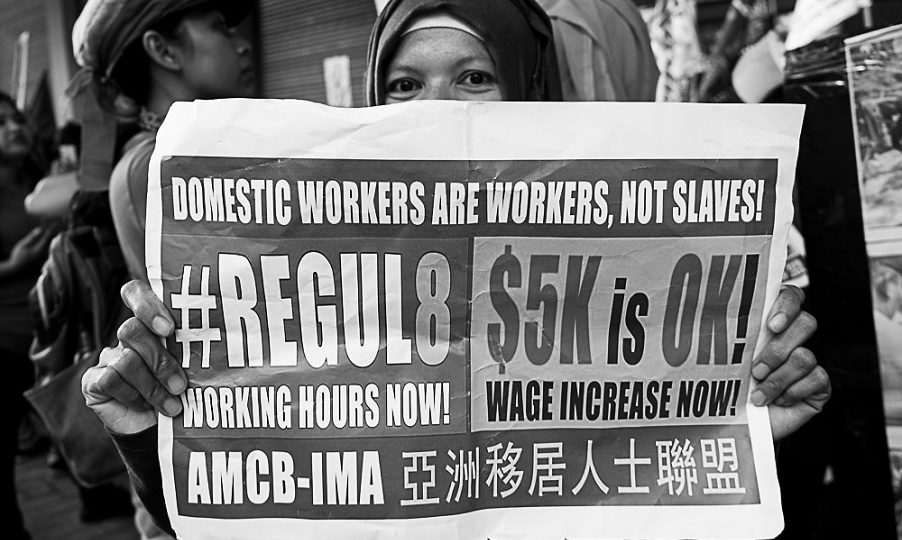To anyone who’s suffered through Hong Kong notoriously long, humid, and sweltering summers, the cool blast of air conditioning can feel like a non-negotiable requirement for a sound night of sleep.
It’s no surprise then, that netizens were shocked when a woman surnamed Wong took to a Facebook group for employers of domestic workers to gripe about how her helper had dared to use her air conditioning unit “without her permission”.
“I got up at 1am the other night and saw that she had turned on her air conditioning, so I turned it off again and opened her bedroom door. Later, when I got up at 4am to use the bathroom, her door had been closed again and the air con was back on. I was so annoyed.” (We’d just like to take this chance to remind Wong that the Very Hot Weather Warning has been hoisted for the past five consecutive days.)

The irate employer continued, “She was previously able to endure the baking heat during a typhoon and would make sure to ask before switching the air conditioning on. […] Now, however, she’s audacious in the extreme. Before, I had planned on letting her use the air con at night once she completed her three-month probation, but after tonight, I’m going to tear down the switch and add a lock [to the air con unit].”
Facebook users who commented on Wong’s post expressed their shock at her selfishness, and sympathized with the unnamed helper.
One person wrote, “It’s so hot. If your boss refused to turn the air conditioning on at your work, how would you feel?”
Some tried to reason with Wong, saying that her helper would sleep better with air conditioning, and therefore perform her job better. Others were less patient, calling Wong a “damn cheapskate” who “shouldn’t hire a helper” if she couldn’t bear to pay for the air conditioning bill (a sentiment which we agree with, resoundingly).
In response to the backlash, Wong claimed her helper was treated well, with a “room all to herself, a window, and a fan” — clearly, the height of luxury — before admins hastily deleted her post.
However, because screenshots live forever, the story has been covered by numerous major Chinese-language news outlets and commented on by several people, including district councilor Michael Lee.
Lee, who’s part of the Liberal Party’s “Taskforce on Foreign Helper’s Problems”, told RTHK that the case demonstrated that domestic workers needed to be given specific guidelines at the start of their contracts about house rules on air conditioning, among other things.
When asked if he thought the helper had done something wrong, Lee replied, “The most concern [sic] in this matter is she did not ask her boss”.
The councilor said that some employers would think that providing helpers with a fan and a bed inside their own room was more than enough. “Some may think that, ‘even for me, I don’t need the air conditioning to sleep’,” Lee added. “They come from the the hot, hot countries, right? I don’t whether they used to sleep with the air conditioning environment.”
Thankfully, Lee does not speak for everyone. Speaking to HK01, actress Candy Lo said she was appalled by the story. “In such hot weather, you’d turn on air conditioning for a panting dog, so why would you treat a human being any worse?” she said.
Lo, who has hired a helper for almost a decade, added, “I don’t set rules for my helper — I trust her to make the right decisions for herself. It’s already tough enough that domestic workers have to leave their homes and families behind for their jobs. I teach my three sons to speak to our helper kindly and to treat her with respect.”
Just last week, SCMP reported that a study from the Hong Kong Polytechnic University (PolyU) and the Chinese University of Hong Kong (CUHK) said that there were 7 to 8 percent more deaths from cardiovascular or respiratory diseases during hot nights than during the day. The analysis was based on 284,477 mortality records from 2007 and 2014.





Reader Interactions